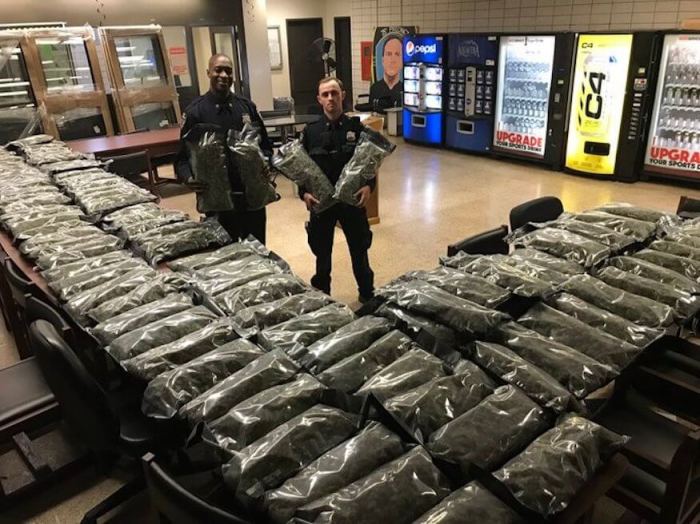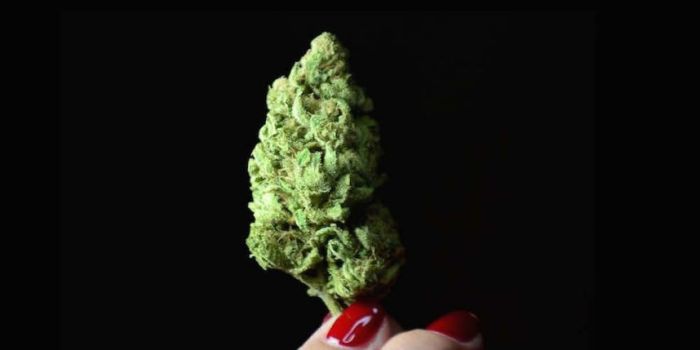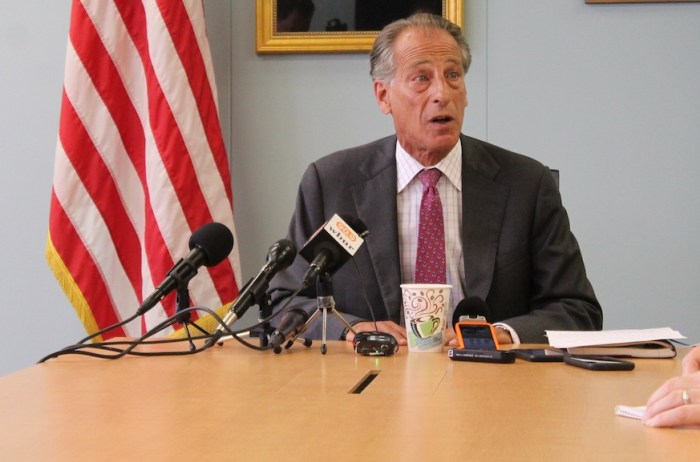Legalizing marijuana in Massachusetts would create thousands of jobs in a newly regulated market, snatch a lucrative business away from “gangs and cartels” and generate new tax revenues for government, according to the political director of legalization efforts in five states, including Massachusetts. During a televised interview broadcast on Sunday morning, Matt Simon of the Marijuana Policy Project told WCVB-TV’s “On the Record” that he believes an initiative petition being drafted to legalize marijuana will be approved “overwhelmingly” after a debate over impacts in states where it is already legal, including Colorado and Washington. “I think the whole state of Massachusetts will be having a robust debate about these issues, and I think we’ll get into the nitty gritty of what really is happening in Colorado and Washington,” said Simon, a New Hampshire resident who is working on 2016 ballot efforts with groups in Arizona, California, Maine, Massachusetts and Nevada. Drafters of the Massachusetts question face an Aug. 5 deadline to submit language to Attorney General Maura Healey, who will decide whether it meets qualifications to be certified as ballot eligible. The legalization push has few supporters among elected officials, and faces opposition from Gov. Charlie Baker, Boston Mayor Martin Walsh and House Speaker Robert DeLeo. Healey is also opposed.
“It’s frustrating to hear they’re upset about a ballot question they haven’t had an opportunity to read yet,” Simon told hosts Ed Harding and Janet Wu. “We have a drafting committee that’s working very hard on this . . . I’d just ask that they reserve judgment until they read it.” Simon acknowledged the proposed tax rate on legal marijuana could play a role in determining its impact on the black market, and the tax rate will also determine government’s share of the regulated market. Simon declined to specify a planned rate or say which state government agency would regulate marijuana, other than ruling out the Department of Public Health, saying those questions are still under discussion. Legalized marijuana opponents, like Mayor Walsh, predict it will add to the state’s existing problems with heroin and opiate addiction and broaden the widespread negative impacts of substance abuse. Simon said regulated marijuana was a $700 million market in Colorado last year. “I’d just encourage Mayor Walsh to step back a little bit and put emotion aside and start looking at the actual facts and evidence from Colorado,” said Simon. Asked about claims that marijuana users will turn to more dangerous drugs, Simon said a “tiny fraction” move to other drugs and drew alcohol into the debate. “Nobody goes to a liquor store and gets turned on to cocaine and heroin,” he said. Previewing a campaign theme, Simon said voters will face a choice between creating a new regulated market and continuing to see marijuana users buy from a “criminal market,” which he described as the “bigger problem.” He said, “People are going to be using marijuana regardless of what we do.” In March, Healey, who supported a 2008 marijuana decriminalization ballot question, said her opposition to full legalization of marijuana was informed by conversations with attorneys general from Washington and Colorado. Law enforcement officials in those states have not seen a drop in drug trafficking and saw people from out of state purchase “vast amounts” of the drug to traffic it, she said. Simon asserted marijuana use is “objectively safer than alcohol,” which he called a “dangerous drug,” and added that he doesn’t use the term recreational marijuana to describe the ballot question, opting instead to referring to it as “non-medical” marijuana or “adult use.” Marijuana users use it for purely medical reasons, he said, or for insomnia, depression, or anxiety. “A lot of people are using it for the same reasons people use alcohol – a long day at work, come home, should I relax with a beer or with marijuana? We argue marijuana is objectively safer than alcohol. People should be able to make that choice.” Marijuana activists were successful with ballot questions in Massachusetts where voters in 2008 agreed to decriminalize possession of less than an ounce of marijuana and in 2012 approved medical marijuana. Regulators have missed deadlines to implement the medical marijuana law and no dispensaries have opened to date. Another group, Bay State Repeal, is also seeking to place a question legalizing marijuana on the 2016 ballot and has released a draft of its initiative.
The state senator tasked with researching the legalization of marijuana said in April that he was heartened by its focus on preventing minors from obtaining the substance.
“My view is that there is nothing more important, in considering any changes to marijuana laws, that we protect public health and public safety and that foremost among in that goal is ensuring teenagers and young people are not using marijuana,” said Sen. Jason Lewis, a Winchester Democrat. At a state budget hearing in Worcester, Northwestern District Attorney David Sullivan in March said that today’s marijuana is so powerful it is defined as hashish, and he said youthful drug and alcohol use leads to future criminality. Sitting across from the panel of top prosecutors at that hearing was Sen. Will Brownsberger, a Belmont Democrat and a supporter of marijuana legalization.
“So based on that line of argument, should we turn the clock back and prohibit alcohol?” Brownsberger asked.
“We are living with alcohol and its effects on society and they’re not particularly good, but why would we want to compound that with respect to marijuana?” said Cape and Islands District Attorney Michael O’Keefe. While the Legislature is often involved in public policy debates over plan
Marijuana Policy Project: Mass. pot legalization will help jobs, hurt gangs

File


















